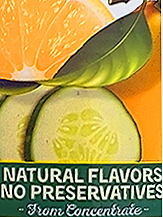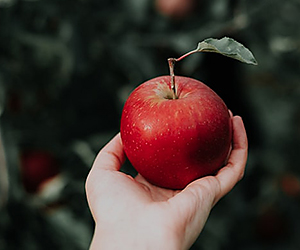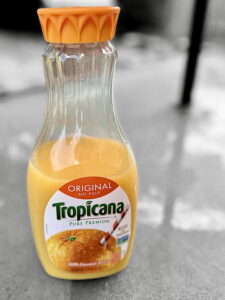
When you see “from concentrate” on the label of your favorite juice, don’t worry if you think you’ve been drinking less juice than you thought. You will be pleasantly surprised to hear that you have not. So what does it mean? Does it mean that the juice is not fresh or healthy? Is it less nutritious than other juices? Is it a cheaper version of natural juices? Thankfully, you won’t need to worry about any of those things.
When you see the phrase on a beverage, it simply indicates that the juice has been condensed and packaged for ease of storage and shipping. There is not much of a negative implication in calling a beverage “from concentrate” – it’s just another way of packaging and shipping the same great product! But there are some compromises.
Let’s ‘Concentrate’ on the Details!

“From concentrate” is the process of fruit juice being treated with a certain amount of heat and pressure to extract more of the juice from the original fruits.
This process is typically used for mass-produced juices. It has the added benefit of being able to be made year-round, even when fruits are out of season. The high heat and pressure used in this process preserve the juice much longer than fresh juice would last.
While fresh juices are often delicious and nutritious, they are also perishable. As soon as the juice is extracted from the fruit, it begins to lose nutritional value and spoil. For example, an apple fresh off the tree has around 80% of its nutrients intact. The rest of the nutrients are lost as the juice is pressed out of the apple. But no worries. Read on!
The benefits of a ‘From Concentrate’ Juice
Since these juices are concentrated and have undergone additional processing, they usually have higher levels of vitamins and minerals than fresh juices. This is because fresh juices begin to lose their nutritional value as soon as they are extracted from the fruit or vegetable they’re made from. To make the most of their ingredients, industrial juice companies harvest fruit at its peak ripeness and then quickly process and package their juices.
A from-concentrate juice, by contrast, is flash-frozen and then packaged. Because freezing prevents any nutritional degradation, these juices can have higher levels of vitamins and minerals than fresh juices. From-concentrate juices are also often more affordable than fresh juices, thanks to the fact that they can be shipped and stored for long periods. From-concentrate juices are a great way to get more vitamins, minerals, and other nutrients into your diet without having to spend a fortune. They’re also a great choice for people who have trouble digesting fresh juices.
The Difference Between From-Concentrate and Natural Juices

There are a few key differences between from-concentrate juices and fresh, natural juices. First, from-concentrate juices have been flash-frozen and packed in a can or a plastic bottle. By contrast, fresh juices are sold in transparent plastic containers, and they are best consumed within a few days of being made.
The freezing process that from-concentrate juices are put through extends their shelf life significantly. Fresh juices won’t last nearly as long as from-concentrate juices, as they contain a much higher amount of water that can breed bacteria. From-concentrate juices are also typically more expensive than natural juices because they are more time- and labor-intensive to produce.
So your choice is buying from-concentrate juices and expecting a relatively long shelf life or buying fresh juice without concentrate with a less shelf life but saving a few dollars doing so.
Some people like to latter option since it requires less processing. We’ll leave the decision up to you!
How is From-Concentrate Juice Made?
As we’ve seen, from-concentrate juices begin with a mixture of fruit and water. The water is then removed, either through a filtering process or by applying extreme heat. In some cases, ingredients like sugar, citric acid, and/or preservatives are added to the mixture. From there, the concentrated juices are flash-frozen and packaged in canisters or plastic bottles.
Is There Any Downside to From-Concentrate Juices?
There isn’t anything wrong with from-concentrate juices per se. They are simply another way of packaging and shipping the same great product! That being said, it may be worth noting that from-concentrate juices tend to have less fiber than their fresh counterparts. Since from-concentrate juices are flash-frozen, the water inside them freezes quickly. The resulting ice crystals burst open the cells of the fruit, releasing their fiber and other nutrients. Fresh juices, on the other hand, are frozen at a much slower pace. This is because fresh juices contain a higher amount of water that needs to be boiled off first.
Conclusion
In summary, there is nothing to worry about when you see “from concentrate” on the label of your favorite juice. From-concentrate juices have simply undergone a process that extracts more juice from the fruit and then flash-freezes it for long-term storage and shipping. From-concentrate juices are just as nutritious and delicious as fresh juices, and they can be a great way to get more vitamins, minerals, and other nutrients into your diet without having to spend a fortune.

Still, want to ensure you are getting the most out of your fruits? Purchase the real fruits in the fruit section of your grocery and then you can never go wrong!
